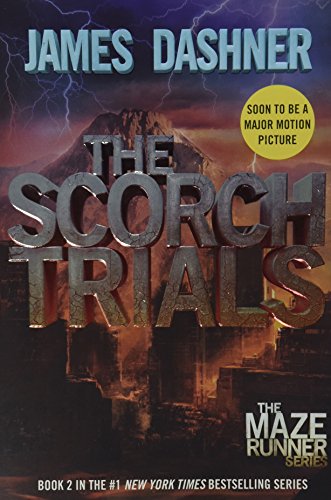
The problem with a lot of series of this type – whether they’re YA or not – is that once you get past the initial idea that makes the first book or movie compelling, in this case the mystery of why the teens are being held captive within the Glade and the nature of the Maze itself, the more you learn about the mythology the more it falls apart. So, they escape and head into the Scorch – the blasted wasteland that is home to blazing heat, ruined cities and (fast-moving) zombie-like virus victims known as Cranks – looking for answers and trying to outrun Janson and the minions of WCKD. But it’s not long before the kids discover that instead of the new homes they’re being promised, they’re being prepped for more ghastly experiments. This group is under the supervision of Janson (Aiden Gillen, collecting a paycheck to play Littlefinger in a sci-fi setting). Eventually Thomas and a small group of friends – including the Glade’s first female prisoner, Teresa (Kaya Scodelario) – solved the Maze and broke out, only to discover that they were the subjects of a vast experiment to find out why they were immune to a deadly virus that has wiped out most of whatever was left of humanity following (!) a solar flare that destroyed civilization.Īs The Scorch Trials begins, Thomas and friends – along with kids who have survived other labyrinths - are whisked away to another secret facility run by the organization behind the Maze, WCKD. So, now we have Maze Runner: The Scorch Trials, which picks up literally where the first story left off and follows our band of surviving characters out of the gigantic maze they’ve had to navigate and into what’s left of the world beyond.Ī quick recap: in the first film, protagonist Thomas (Dylan O’Brien) woke up with no memories in a place called the Glade, a sort of rural encampment populated entirely by teenage boys and sealed off by a gigantic maze populated by monstrous creatures. It was gripping entertaining.īut of course, no one leaves well enough alone anymore, and since Dashner wrote a trilogy of books (does any author ever get to publish a standalone genre novel anymore?), it therefore follows that, given The Maze Runner’s healthy box office return, the other books should also be adapted for the screen.

Instead, it proved to be a thoughtfully-directed and reasonably well-acted, post-apocalyptic mystery nestled into a Lord of the Flies scenario. Directed by the unknown Wes Ball, starring a cast of young, mostly unfamiliar faces, and based on a dystopian YA novel by James Dashner, the movie had all the potential in the world to be yet another forgettable, irritating carbon copy of The Hunger Games.


One of last year’s bigger sci-fi surprises was The Maze Runner.


 0 kommentar(er)
0 kommentar(er)
